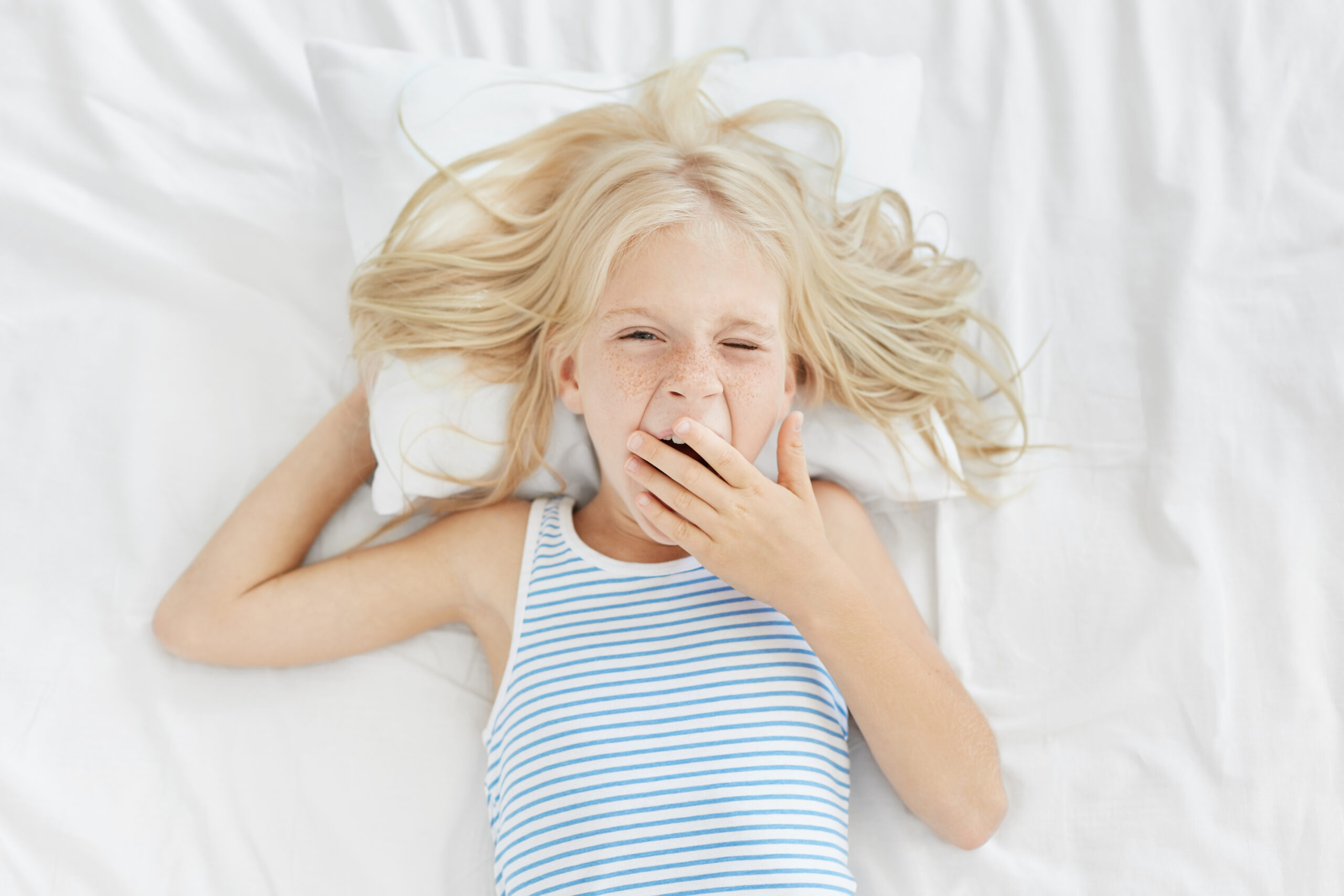Can Grinding Teeth at Night Harm Your Child’s Smile?

Does your child grind their teeth at night? You’re not alone—many parents notice this habit, known as bruxism, and wonder if it can harm their child’s smile. While occasional teeth grinding might not seem like a major issue, persistent bruxism can lead to dental problems, discomfort, and even long-term oral health concerns. In this blog, we’ll explore the causes of bruxism, its potential impact on your child’s teeth, and how you can help protect their smile.
What Is Bruxism?
Bruxism is the medical term for teeth grinding and jaw clenching. It can occur during the day (awake bruxism) or at night (sleep bruxism). Many children are unaware that they grind their teeth while sleeping, and parents often discover it after hearing the grinding noises or noticing signs of wear on their child’s teeth.
Common Signs of Teeth Grinding in Children
- Audible grinding sounds during sleep
- Worn-down, chipped, or flattened teeth
- Complaints of jaw pain or headaches
- Increased tooth sensitivity
- Difficulty chewing due to sore teeth
- Unexplained damage to the inside of the cheeks
- Frequent waking at night due to discomfort
If you notice these signs, it’s important to consult a pediatric dentist for an evaluation.
What Causes Teeth Grinding in Children?
Several factors can contribute to teeth grinding in children, including:
1. Stress and Anxiety
Just like adults, children can experience stress and anxiety, which may lead to nighttime grinding. School pressures, social interactions, and changes in routine can all be triggers.
2. Misaligned Teeth or Bite Issues
When a child’s upper and lower teeth don’t fit together properly, the body may attempt to correct the misalignment through grinding.
3. Pain or Discomfort
Teething pain or ear infections can sometimes lead to temporary bruxism as a way to relieve discomfort.
4. Sleep Disorders
Children with sleep apnea or other sleep disturbances may be more likely to grind their teeth at night.
5. Hyperactivity or Certain Medications
Children with ADHD or those taking certain medications may have an increased risk of bruxism.
6. Genetics
Teeth grinding can run in families, so if you or other family members have a history of bruxism, your child might be more prone to it.
Can Teeth Grinding Damage Your Child’s Smile?
While mild bruxism may not cause significant harm, chronic teeth grinding can lead to dental complications over time. Here’s how:
1. Enamel Wear
Tooth enamel is the protective outer layer of teeth, and excessive grinding can wear it down, making teeth more susceptible to cavities and sensitivity.
2. Tooth Damage
Persistent grinding can result in cracked, chipped, or flattened teeth, affecting your child’s bite and overall oral health.
3. Jaw Pain and TMJ Disorders
Chronic bruxism can strain the jaw muscles and joints, potentially leading to temporomandibular joint (TMJ) disorders, which can cause pain, headaches, and difficulty chewing.
4. Disrupted Sleep
Teeth grinding can prevent restful sleep, leading to daytime fatigue, difficulty concentrating, and behavioral changes.
5. Gum Recession
In some cases, severe bruxism can contribute to gum recession, exposing sensitive areas of the teeth and increasing the risk of decay.
How to Stop Teeth Grinding in Children
If your child grinds their teeth at night, there are several steps you can take to help protect their smile and promote better oral health.
1. Address Stress and Anxiety
If stress or anxiety is the cause, try relaxation techniques such as bedtime routines, calming activities, and open conversations about any concerns your child may have.
2. Improve Sleep Hygiene
Creating a soothing nighttime routine can help your child sleep more peacefully. Ensure they have a comfortable sleep environment, avoid screen time before bed, and encourage consistent sleep schedules.
3. Check for Bite Issues
A pediatric dentist can assess your child’s bite and determine if orthodontic intervention is needed to correct misalignment.
4. Use a Night Guard (if Necessary)
In cases of severe grinding, a dentist may recommend a custom night guard to protect your child’s teeth from excessive wear.
5. Manage Underlying Health Conditions
If teeth grinding is linked to a medical condition such as sleep apnea, addressing the root cause may help reduce bruxism.
6. Avoid Caffeine and Sugary Foods Before Bed
Caffeine and sugar can contribute to hyperactivity, making teeth grinding more likely. Limiting these foods in the evening may help.
7. Encourage Jaw Relaxation Techniques
Gentle jaw massages, warm compresses, and relaxation exercises can help ease muscle tension in the jaw.
When to See a Pediatric Dentist
If you suspect your child is grinding their teeth, scheduling an appointment with a pediatric dentist is the best course of action. A professional evaluation can determine the severity of the bruxism and whether any intervention is needed.
Your child’s dentist may:
- Examine their teeth for signs of grinding and enamel wear
- Assess their bite and jaw alignment
- Recommend treatments such as a night guard or orthodontic evaluation
- Provide guidance on lifestyle changes to reduce bruxism
Protect Your Child’s Smile with Parkway Pediatric Dentistry in Roanoke, VA
At Parkway Pediatric Dentistry in Roanoke, VA, we understand the importance of protecting your child’s teeth from nighttime grinding. Our experienced pediatric dental team can evaluate your child’s oral health, provide expert guidance, and offer personalized treatment solutions to ensure their smile stays healthy and strong.
If you’re concerned about teeth grinding or want to schedule a dental checkup, contact Parkway Pediatric Dentistry today! Our compassionate team is here to help your child achieve a lifetime of healthy smiles.

